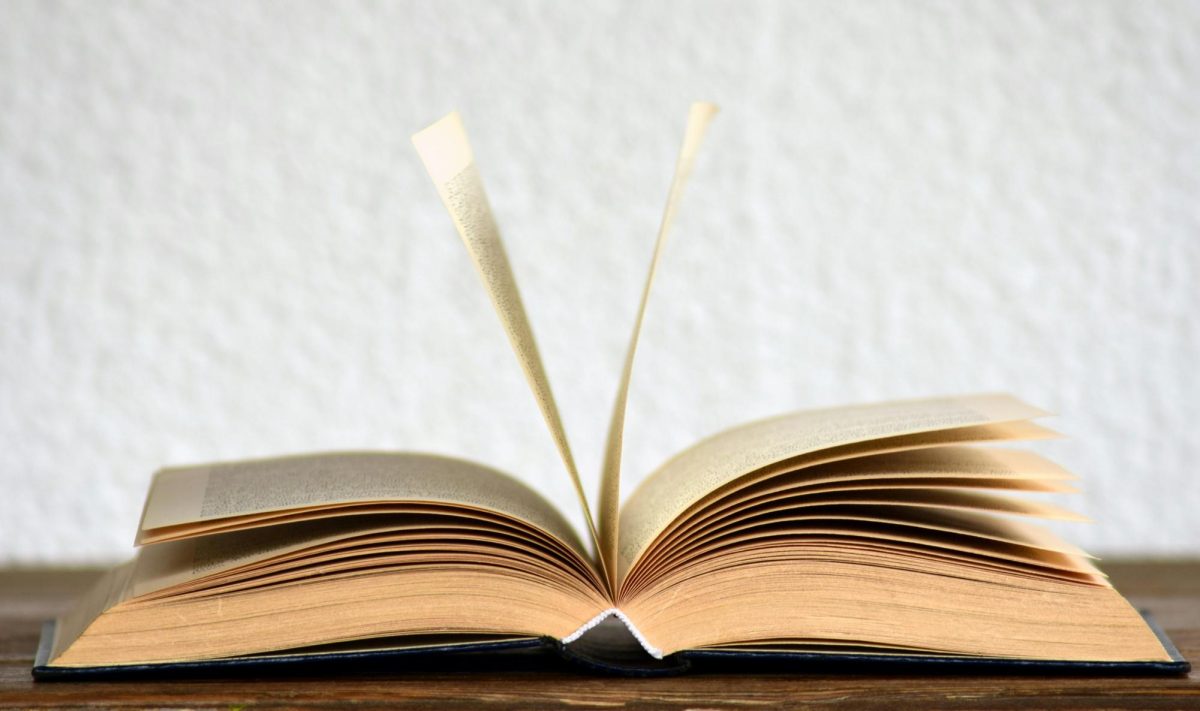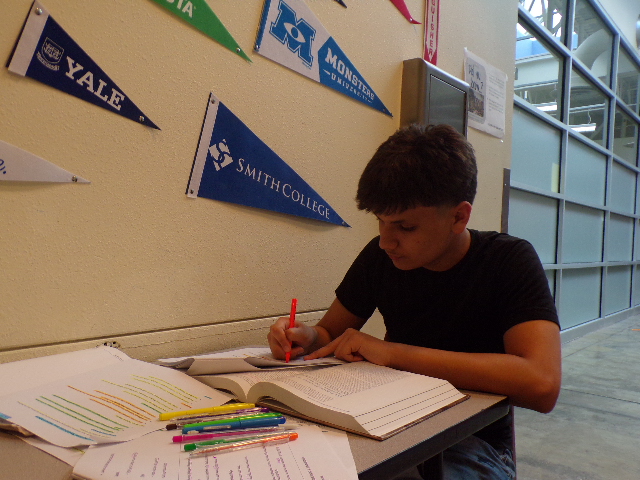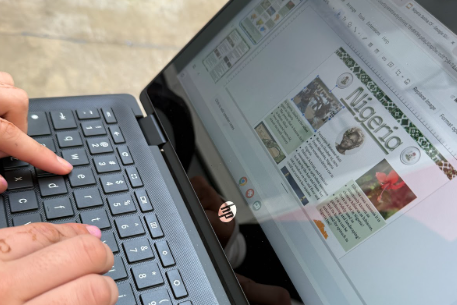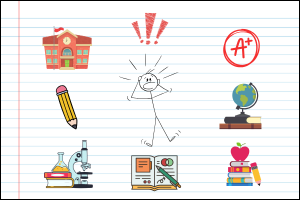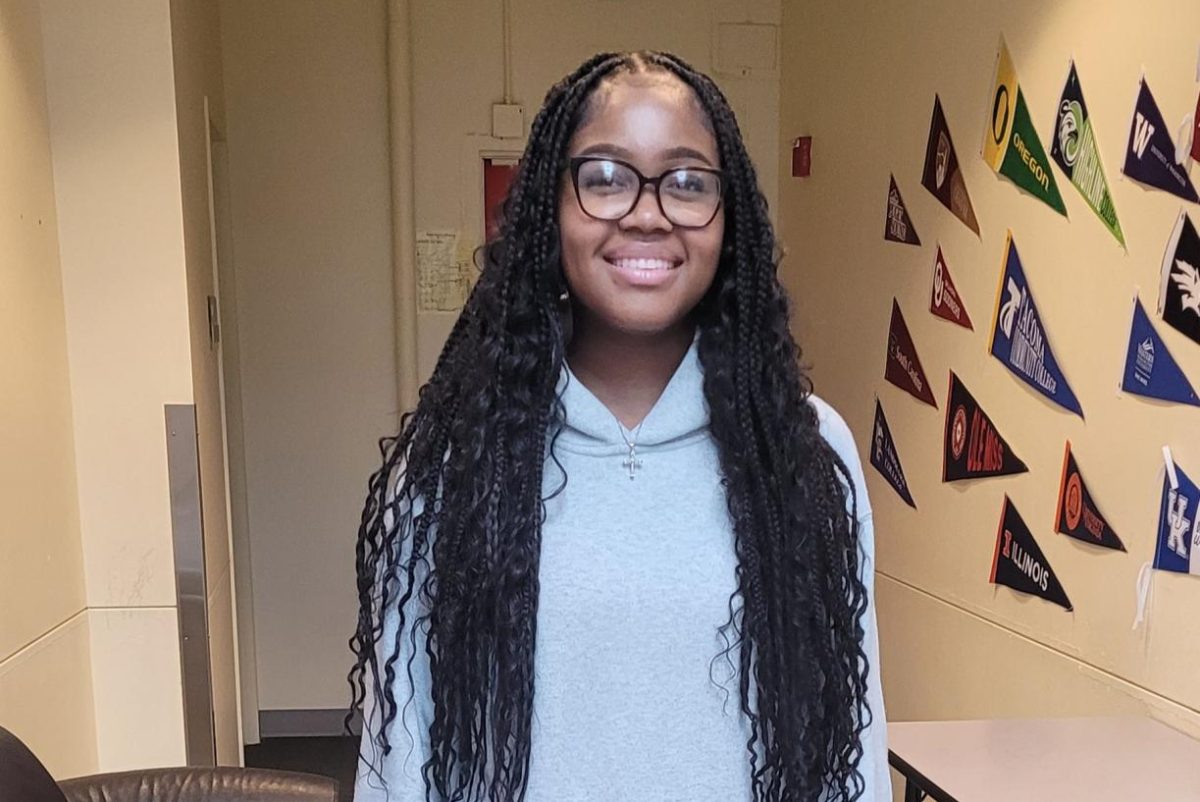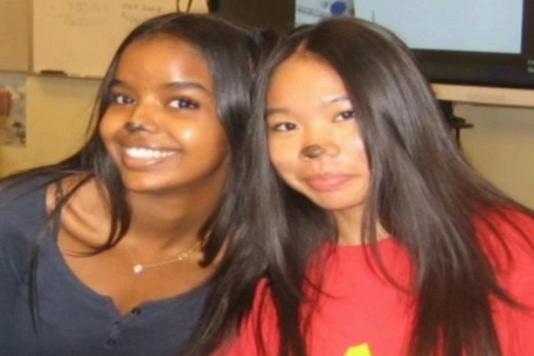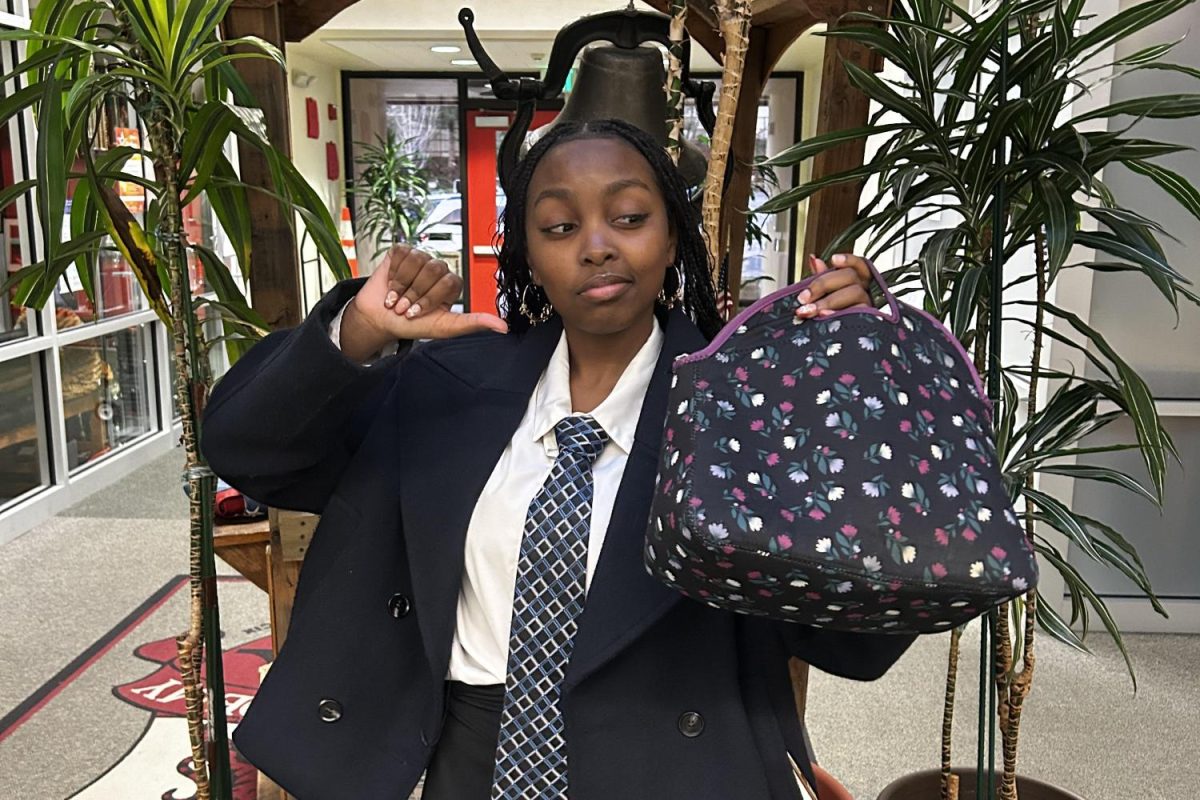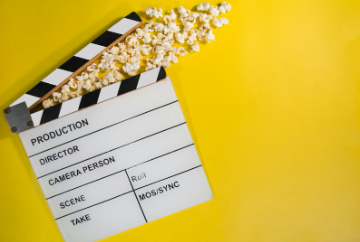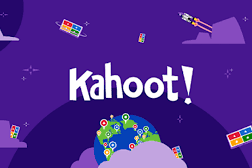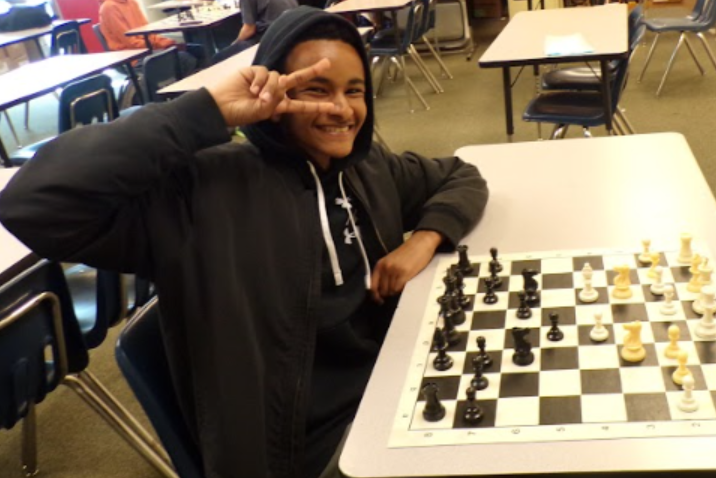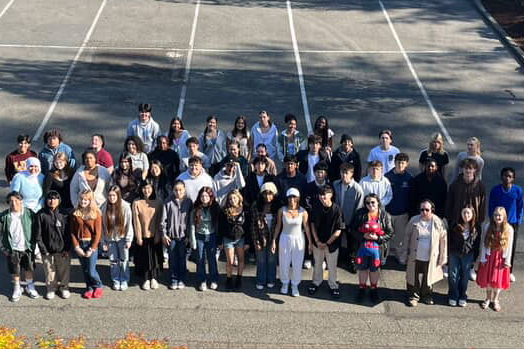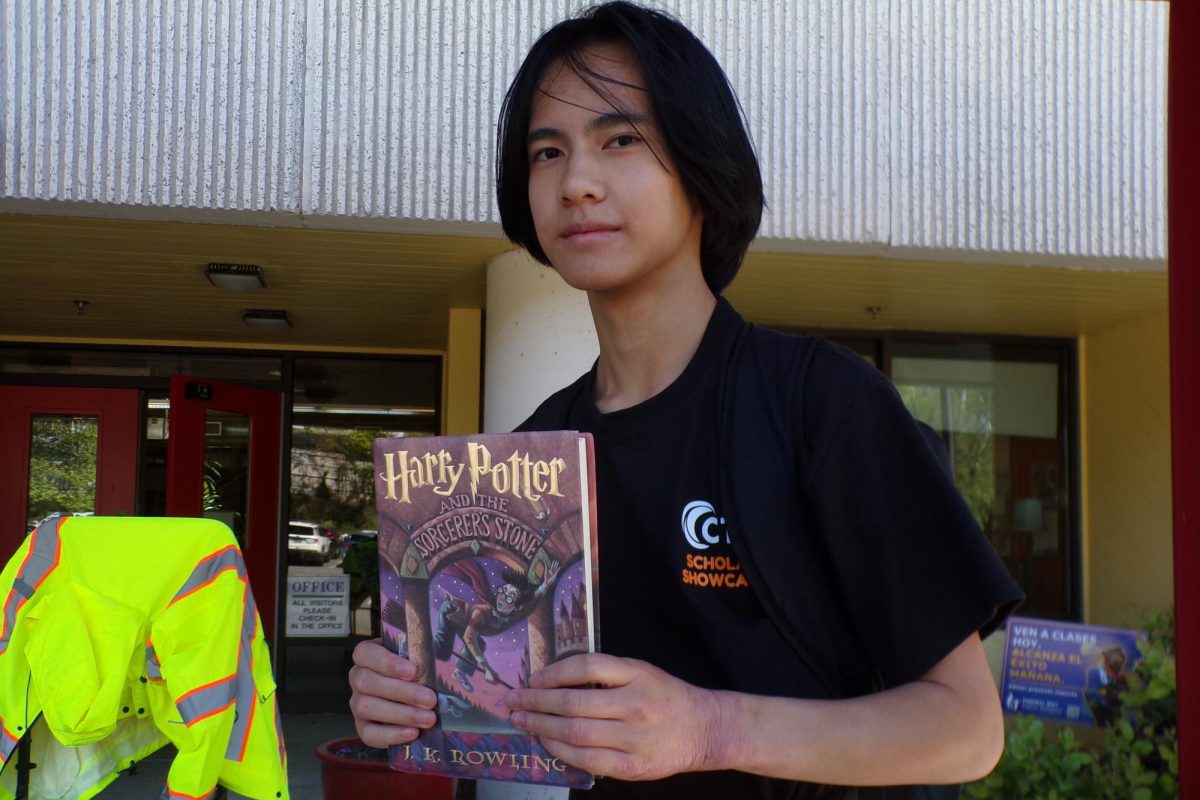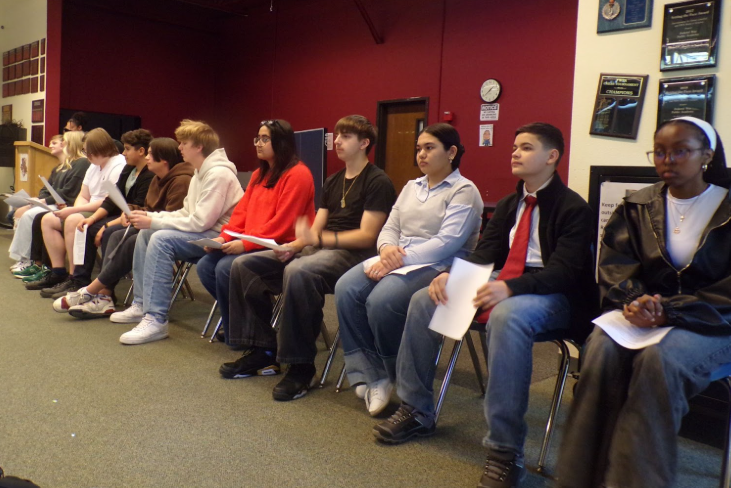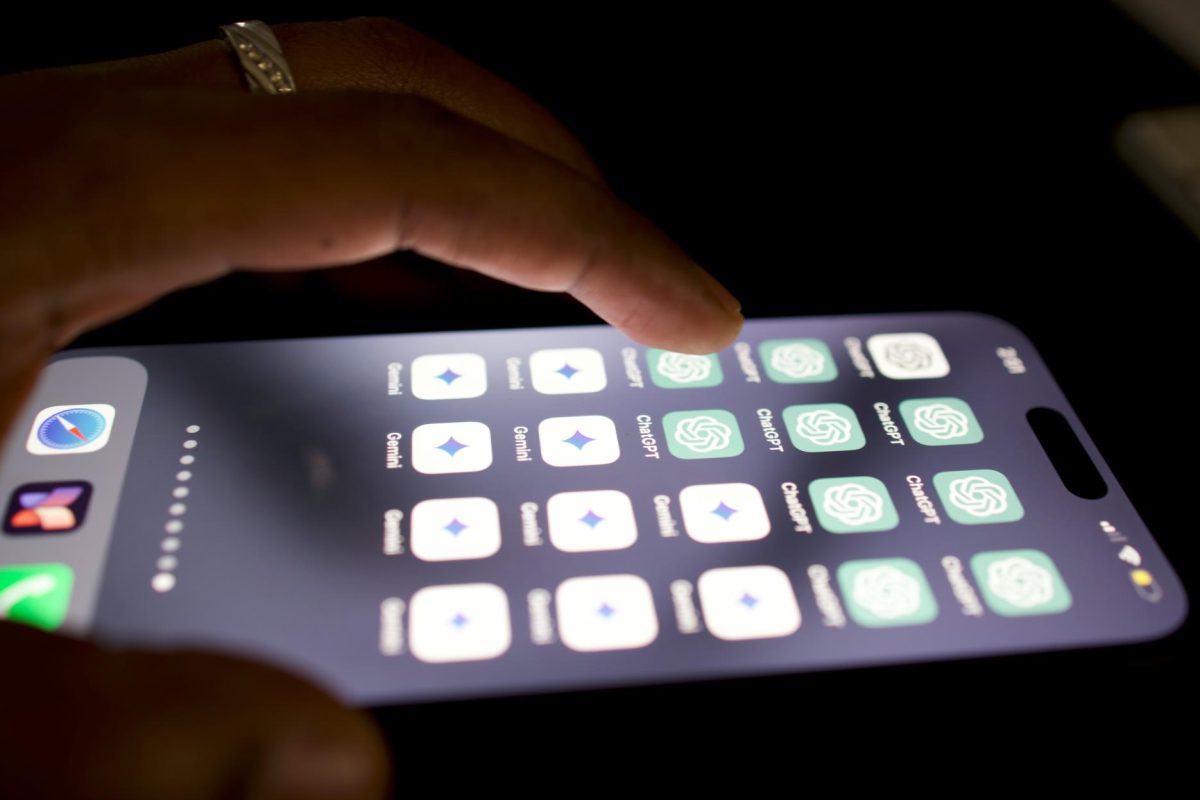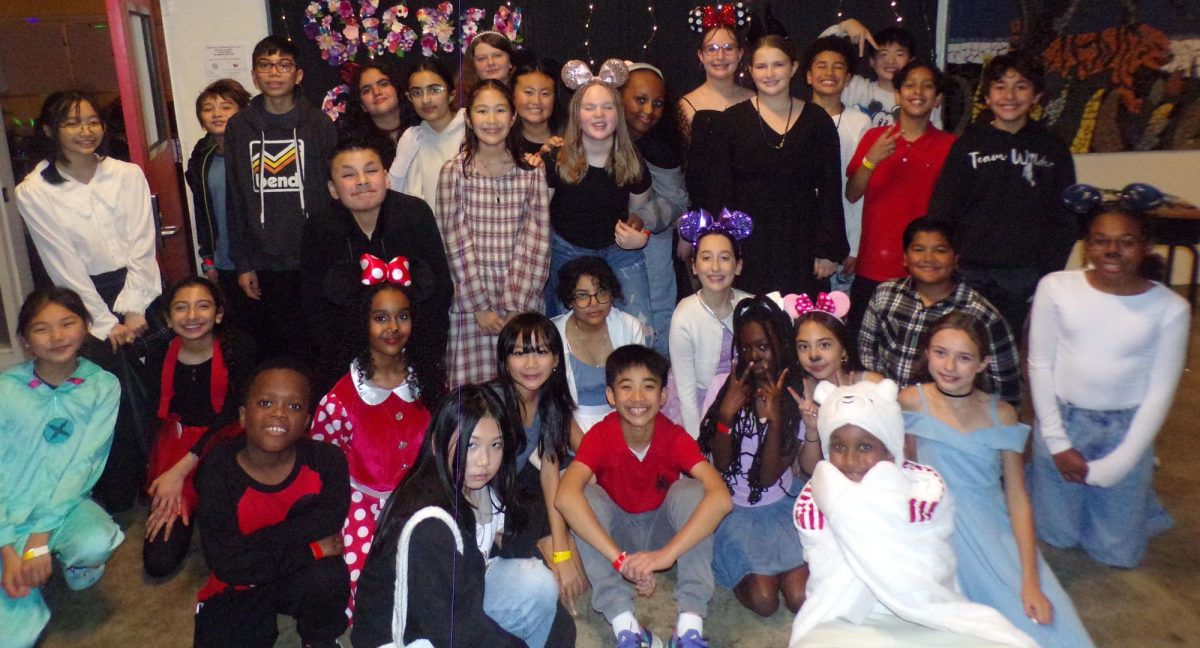While AI has been around since the creation of computer word processors with the use of autocorrect, generative AI has seen an uptick within the last three years. Students are using the program, Chat GPT to “cheat” on their school work while teachers like Mr. Klumpenhower and Mr. Roberts, as well as other students observing its use in schools, notice both the good and the bad.
Students use AI as a way to cheat on their assignments, however AI can often be easily detected by teachers. Mr. Roberts, 9th and 10th grade English teacher, says, “It never sounds perfect [AI imitating human writing]. That’s another thing that I’ve noticed, is that people have specific tones that they tend to write in and the moment that shifts, you’re gonna like, okay this doesn’t sound like them. And sometimes it’s just uncanny.”
Students are easily going to be caught when using AI, but, Mr. Klumpenhower, 7th grade English and History teacher, observes that oftentimes, students can get away with using AI. “Sometimes we don’t catch it, if you’re smart about it, if you’re very clever, you can make it hard to detect. Though the ironic thing about it is, there’s so much work behind making it undetectable, you might as well have done the work originally.”
If AI takes work to cover up, why do students use AI at all? While laziness can be a fact and is most commonly pointed at as the main issue, the pressure to succeed is another. As assignments pile up in the year, Mr. Roberts observes that AI is more commonly seen and further used amongst his students. Likewise, Mr. Klumpenhower states that students with more stress to succeed are more likely to be the ones using AI throughout their work.
That being said, the consequences for using AI in schoolwork can be hefty and though it can vary between teachers, Mr. Roberts and Mr. Klumpenhower both conclude that the work adds up to a zero. In the case of Mr. Roberts, the family is contacted and he holds a conversation with them about academic integrity if the student turns in work done by AI.
However, AI doesn’t just have to be harmful to a student’s grade. In fact AI can be used to help a student learn. English teachers like Mr. Klumpenhower and Mr. Roberts who observe AI the most out of other teachers do make exceptions for AI work. When asked for exceptions for the use of AI Mr. Klumpenhower states, “When kids use it as inspiration for what kind of things can be answered, but they still add their own thoughts. To me, the key is, did you put it in your words? Did you add your own thoughts and did you quote your sources? If you say I used AI to get this but this is what I added to it, no one will question you.”
Whereas Mr. Roberts having been asked the same question responded with a little less leniency and a different perspective “It would be incredibly dependent on what its being used for. If it is producing the work for you, absolutely not, if it is being used in some way- like I know one student used it to give it feedback on an essay because they didn’t have a family member that was willing to read it, that I am more inclined to be okay because at the very least you are having something take a look at it.”
In fact coming from a student, who will remain anonymous, who has used AI in their work (Both for work and to help) reports a different way to utilize AI. “I haven’t turned in anything made by AI (since their first use). I used it a couple of times to help me study and stuff.” The student used AI with revision over their notes and summarization, therefore using AI in a way that would not constitute as academic dishonesty.
In short, AI, by nature is a benign tool that can be used to further an education by using it to help revise, summarise and inspire. On the other hand, when AI is used in ways such as generating content to be submitted as student’s own work, AI can sabotage a student’s career.

